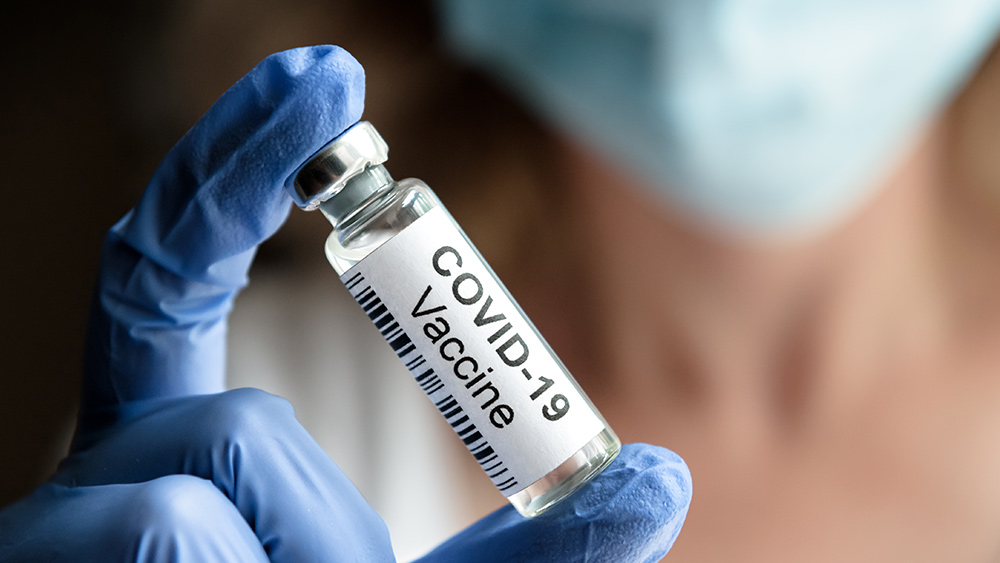Fluoridated water found to be a factor in the development of ADHD
03/20/2017 / By Ethan Huff

Many health experts claim that it’s an important part of maintaining healthy teeth that are free of cavities. But new research published in the journal Environmental Health says that artificially fluoridating public water supplies with the toxic waste byproducts of aluminum and fertilizer production is harming children, and appears to be directly linked to rising rates of learning disabilities like attention deficit hyperactivity disorder, or ADHD.
Ingesting fluoride chemicals like hydrofluorosilicic acid via treated drinking water was shown in the research to contribute to a problem that more than six percent of American children currently face. Children who have trouble paying attention in class, are hyperactive, or who have trouble controlling their impulses could be the victims of a chemical assault that, for many decades, has been disguised as one of the “greatest” public health interventions of all time.
Contrary to popular belief, the synthetic fluoride chemicals added to most public water supplies in the United States are not the same as naturally-occurring calcium fluoride, a mineral that occurs in some places in nature. These synthetic fluoride chemicals are a major environmental risk factor for ADHD, the study found, and yet almost no research has taken place into this possible link, despite ever-rising rates of ADHD and similar learning disorders in children.
“States in which a greater proportion of people received artificially-fluoridated water in 1992 tended to have a greater proportion of children and adolescents who received ADHD diagnoses [in later years], after controlling for socioeconomic status,” Ashley Malin, one of the lead authors of the Environmental Health study, from York University in Toronto, Canada, is quoted as saying by Newsweek.
Fluoride exposure linked to damaged thyroid, decreased cognition, and lowered IQ
Similar research out of the U.K. linked fluoride ingestion to thyroid disease, noting that fluoride displaces minerals in the thyroid that keep it functioning normally. Both children and adults are affected by exposure to fluoride, the study found, noting that exposure just from drinking water alone — this doesn’t take into account exposure from food, toothpaste, and other sources — is enough to push some people over the edge.
Pregnant women are especially vulnerable, as fluoride has been shown to directly cross the placenta and accumulate in the brain of a developing baby inside the womb. As its pathological effects proceed, these fluoride chemicals can continue accumulating until they reach a point of causing severe neurotoxic effects, damaging attention span, learning, and memory.
Tests revealed that children who are exposed to typical levels of fluoride in water — between 1.2 – 3 milligrams per liter (mg/L) — showed increased urinary concentration of fluoride. This marker is indicative of problems like poor visual-spatial organization, slowed reaction times, and an impairment of ability to read and write.
Ingesting fluoride at “optimal” doses is also linked to decreased IQ levels in children, as evidenced in numerous studies looking at intelligence and brain development. No matter how you look at it, fluoride is always a detriment, and almost never shows any positive benefits whatsoever in independent tests.
Sadly, millions of children are exposed to fluoride from other sources than just public water supplies. Concentrated fruit juices, processed foods, and conventional toothpastes are often loaded with fluoride chemicals, adding to the overall fluoride burden that is poisoning the bodies and brains of children and adults alike. It’s an epidemic that requires just one solution: to immediately stop fluoridating all public water supplies for the safety of the public.
“Fluoride appears to fit in with a pattern of other trace elements such as lead, methylmercury, arsenic, cadmium and manganese — adverse effects of these have been documented over time at exposures previously thought to be ‘low’ and ‘safe,'” says Caroline Martinez, a pediatrician and researcher at New York’s Mount Sinai Hospital.
Follow more news about fluoride at Fluoride.news.
Sources for this article include:
Submit a correction >>
Tagged Under:
adhd, Fluoride, thyroid
This article may contain statements that reflect the opinion of the author





















